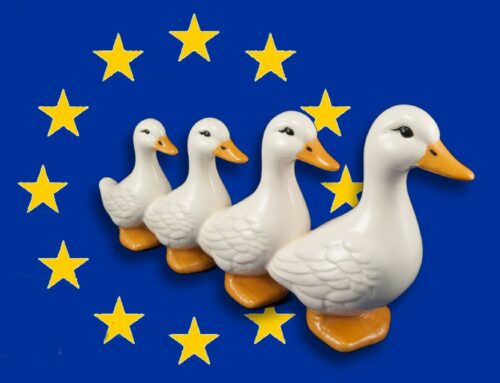Oracles: Blockchain’s gatekeepers to the real world
Oracles are the crucial link between the real world and the ethereal digital world, translating the non-deterministic off-chain data into deterministic on-chain data.
Oracles are the crucial link between the real world and the ethereal digital world, translating the non-deterministic off-chain data into deterministic data on-chain.
In order for the decentralized world to really become a reality we need to understand oracles and their role because, one day, we may even function as one. Once universally understood and integrated, decentralized apps (DApps) will start to scale in the real world, powered by millions, if not billions, of blockchain oracles around the world.
What do oracles do?
In a basic role of verifying information that what is said to be happening in the real world actually is. In this sense a thermostat verifies environmental parameters: I might say “it’s freezing outside” but I can check the thermometer to see if I really need to bring the ice scraper for the windshield.
In the sense of machine oracles or in the blockchain, thermostats are the sensors that communicate with other sensors to relay a “Yes” or “No” answer to a specific question: “has the temperature of the refrigerated shipping container gone above 10 degrees?”
If the answer is yes, then the value of the produce in the container is degraded and the value of the smart contract decreases accordingly. In return for the verifying information, the owner of the oracle (thermostat) is awarded cryptocurrency.
Use cases for oracle sensors
Oracles integrate with the blockchain through smart contracts, allowing you to manipulate an asset or agreement for an asset programmatically. Without any human notary involved, oracles are essential in smart contracts to make them ‘externally aware’ to ensure they fulfil their contractual criteria.
Oracles can be set up for public or private blockchains; for crypto market data smart contracts running on ChainLink nodes can use BNC market data to power oracles requiring external data points, such as the end of day price of Bitcoin. ChainLink is blockchain middleware that allows smart-contracts to access real-world data. Nodes are incentivized to keep running the ChainLink network through rewards of LINK tokens.
Oraclize is another crucial part of middleware that verifies the data carried between web APIs and decentralized applications. It doesn’t create any oracles itself but allows for information sources to act as such.
Supply chain: Sensors act as oracles to verify or trigger a smart contract when a shipment has arrived in a certain location.
Stock inventory: When the number of products hits a certain level a smart contract puts in an automatic order.
Greenhouse emissions: Companies that produce more emissions than their carbon credits allow are automatically deducted money.
Oracles in predictions markets
In prediction markets where outcomes are disputable/debatable, for example, the last US presidential election, machine (sensor) oracles won’t always suffice — the same could apply in insurance markets.
Augur, the blockchain prediction marketplace, claims to solve the “oracle problem” – namely, it gets information from the real world into the blockchain in a fair way by incentivizing humans and machines with a reward of REP (reputation) tokens.
Creator of Augur, Joey Krug, describes the REP token as a bond, “but not in the financial markets sense. It says I’m willing to post this much reputation [on an outcome] and if I’m lying I’m willing to lose it all.”
So, if someone stakes 100 REP tokens at $30 each, they stand to lose $3,000 if it’s proven they have given incorrect information through a simple consensus algorithm where it takes the majority of what people say.
“The way the security works is that market capitalization of reputation needs to be greater than value of outstanding shares in any one market. As long as that’s true you never stand to make any money out of a [51%] attack. Forking only ever happens if that’s not true,” Krug says.
On Augur, parties can create essentially any market they wish, from sports and financial markets to creating an onion futures contract, so long as there’s a willing counterparty. Augur is one of the oldest ERC20 coins and migrates to its own mainnet in July.
In the esoteric lore of blockchain, oracles are one of the less talked about characters whose importance is often overlooked and perhaps misunderstood.

Don’t miss out – Find out more today



